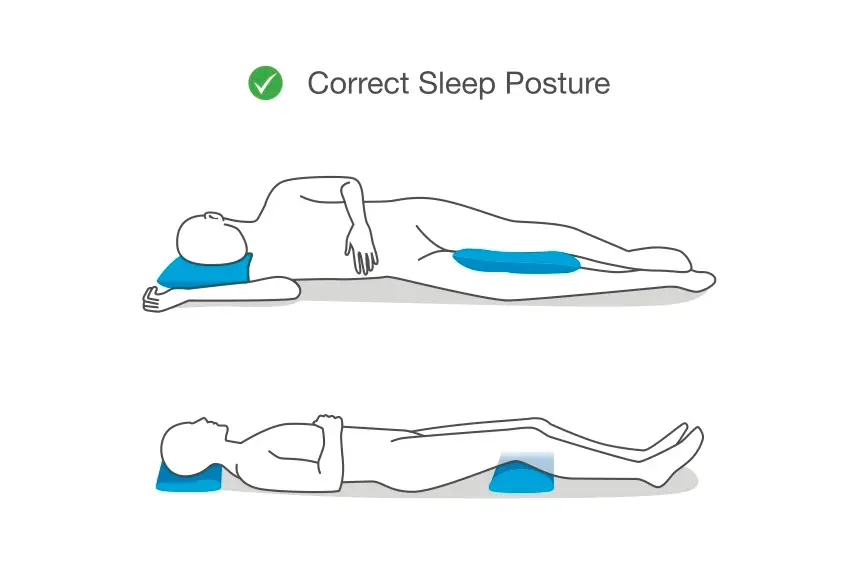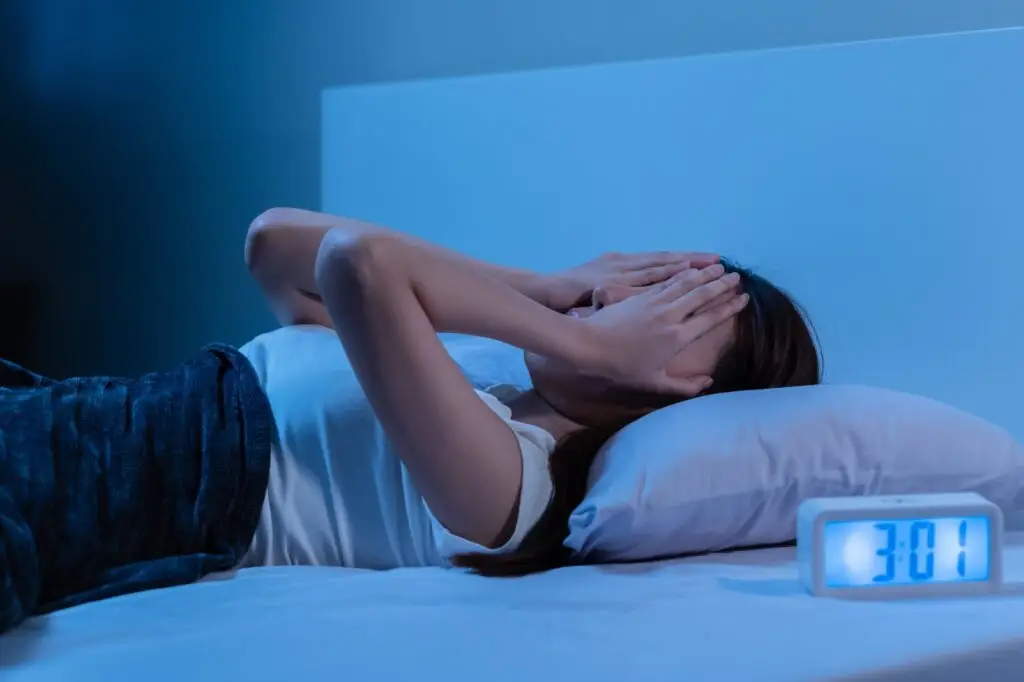Every year, lower back pain causes disability, psychological distress, and loss of time and productivity at work. According to the National Institute of Health (NIH), low back pain also results in patients spending billions of dollars worldwide, to get relief. When low back pain occurs during sleep or immediately upon waking, the physical and psychological impact are compounded.
Research, published by the NIH, pointed to the extent of sleep disturbance amongst people with low back pain. “Data from 1,941 patients obtained from 13 studies conducted by the researcher or their colleagues between 2001 and 2009 was used to determine the prevalence of sleep disturbance. The estimated prevalence of sleep disturbances was 58.7%. Sleep disturbance was found to be dependent on pain intensity, where each increase of one point on a ten-point visual analogue scale (VAS) was associated with a 10% increase in the likelihood of reporting sleep disturbance. Our findings indicate that sleep disturbance is common in patients with low back pain.”
Sleep disturbance caused by back pain is one of the primary reasons thousands of patients set an appointment to consult with the spine specialists at Texas Back Institute each year.
Back Pain While Sleeping Is Exhausting
Few daily activities are more important for physical and mental health than a good night’s sleep. However, when it’s the middle of the night and unrelenting low back pain is more powerful than the fatigue caused by the previous day’s work and activities, this situation can be desperately frustrating. It may also be a sign of something more serious than temporary pain.
“It is extremely common for me to see patients with low back pain who are exhausted from the resulting sleep deprivation,” said Dr. Adewale Adeniran. “The insomnia is frequently more impactful to the patient’s life than the pain itself.”
Sleep Posture

“When back pain occurs only during sleep or immediately upon waking up, it may be a problem with the person’s sleep posture,” Dr. Adeniran said. “Inappropriate sleep posture can prevent maintaining proper alignment of the spine, putting stress and uncomfortable pressure on the spine and its stabilizing muscles and ligaments.”
“I recommend sleeping on your side or on your back with a pillow beneath your knees. If sleeping on your stomach is the only comfortable position for you, place a pillow under your pelvis or lower abdomen for support. This helps to take pressure off of your back.”

Mattress Replacement
The mattress may be the problem causing low back pain while sleeping. Dr. Adeniran advises that switching out your old mattresses for a new one can greatly improve your sleep. “The usual rule-of-thumb is that any mattress older than nine years should be replaced with a new one. This can reduce back discomfort, reduce stress symptoms, and improve sleep quality,” he said.
Pregnancy
“Back pain during pregnancy is extremely common,” he said. “Some women may experience this pain as early as 8 weeks into their pregnancy, it is more likely to become a problem between the fifth and seventh months.
“There are multiple reasons for pregnancy to result in back pain, but one common reason is simply that it can cause strain on lower back muscles. After sleeping for a long period of time, this lower back pain can be worse in the morning, causing prolonged stiffness and muscle tightness.
“In most cases, this pain can be reduced by stretching and using your legs to stand up rather than putting pressure on your back. Using a warm compress might also help relieve the pain.”
If these quick fixes don’t solve the problem, asking your doctor if taking nonsteroidal anti-inflammatory drugs (NSAIDs), such as ibuprofen, is a good idea. These are pain relievers that also reduce inflammation that may be contributing to discomfort. Acetaminophen (Tylenol) may be another option for occasional back pain if you can’t take NSAIDs.
Pain in the Morning
Chronic pain (experienced over weeks) or acute pain (suddenly occurring) felt after waking in the morning may also be a sign of more serious conditions. These might require an examination and treatment by one of a spine specialist at Texas Back Institute.
Degenerative Disc Disease
According to Dr. Adeniran, “Wear and tear of the joints and discs in the spine occur naturally as a person ages. This natural process can cause a number of pain causing issues in the spine, including narrowing of the lumbar spine canal and the space available for the nerves, instability of the various segments of the spine, limitation in motion of the joints and degeneration of the discs. There are multiple medical terms for these changes, but collectively represent ‘spinal arthritis’ or ‘degenerative disc disease’ (DDD). We treat many patients each year for these degenerative conditions.

“Patients with DDD can experience compression of the spinal nerves, resulting in pain, stiffness, and reduced mobility that typically affects the lower back or neck. The pain can range from mild to very severe, and it may radiate to other parts of the body. Symptoms can be worse in the morning and may also interfere with sleep.”
Other possible symptoms of DDD are:
- leg muscle weakness
- numbness and tingling in the arms and legs
- pain getting worse with sitting, lifting, or bending
- pain that improves when walking, moving, or changing position
Dr. Adeniran points out several treatment options for degenerative disc disease. “Surgery is always the final option for any spine condition. We usually recommend taking over the counter (OTC) pain relievers, initially, such as ibuprofen, naproxen, or acetaminophen, and applying ice and/or heat packs. Physical therapy or interventional pain treatments may be appropriate in some cases.
“If the patient’s symptoms are severe and on-going, we might recommend surgical approaches, such as disc replacement or ultra minimally invasive spine surgery or spinal fusion.”
Is back pain robbing you of the sleep your body and mind need? While it may be as simple as these lifestyle changes, our back pain specialists can help you determine if this pain is caused by something more serious. Contact us for an appointment, so you can get some much need rest.


